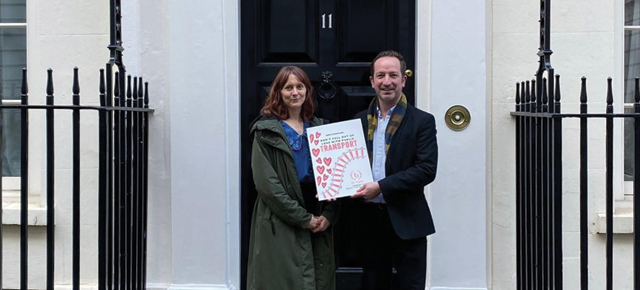Coalition of 15 charities, business and transport group writes to chancellor to make case for bus, rail and active travel ahead of next month’s budget

A coalition of 15 charities, business and transport groups has written to chancellor Jeremy Hunt to urge him to support buses, trains and active travel in the forthcoming budget on March 15.
To help prevent further cuts to services and ensure there is a public transport network fit for the future, the group is urging Hunt to reprioritise investment away from costly carbon-intensive projects, like roadbuilding, towards low-carbon, clean and healthy transport provision as the best way to achieve economic growth, levelling-up and net zero.
The impact that inadequate public transport has on the economy, on businesses and on communities, particularly in a cost-of-living crisis, is profound
The letter calls on the chancellor to: end the cut to road fuel duty, thereby raising £5bn to invest in the bus and rail network; reform rail fares as a matter of urgency; reform local transport funding to give local areas greater power; and protect rail capital spending. The letter, which was delivered on February 14, also called for a guarantee of an enhanced funding package for local buses to prevent imminent cuts to services. The government subsequently announced a three-month extension of the Bus Recovery Grant and the £2 fare cap for England, but campaigners and bus operators want a longer-term solution.
“The impact that inadequate public transport has on the economy, on businesses and on communities, particularly in a cost-of-living crisis, is profound,” said Paul Tuohy, chief executive of Campaign for Better Transport. “It means people losing access to education and jobs, missing hospital appointments, suffering poor health outcomes and being disconnected from family and friends. Investing in public transport and active travel is therefore one of the best ways to achieve economic growth, levelling-up and net zero, and get value for money for taxpayers.”
This story appears in the latest issue of Passenger Transport.
DON’T MISS OUT – GET YOUR COPY! – click here to subscribe!








